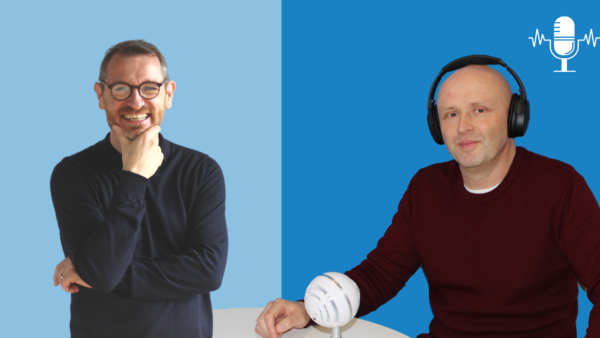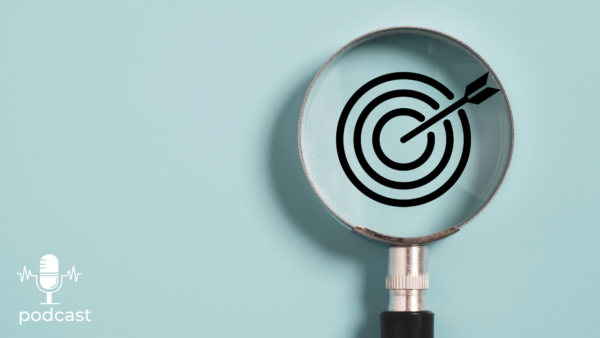There’s a lot of contrary advice out there on whether we’re better at making decisions with our ‘hearts’ (keying into our intuition, values and feelings) or with our ‘heads’ (referencing logic, facts and evidence), so I wanted to spend today’s podcast considering how you can get the best from both worlds, rather than ignoring, suppressing or overplaying one or the other.
My name’s Dr Paul Brewerton, the strengths guy and I podcast each week on life, work and strengths – strengths being the things that energise and drive our behaviour and where we are likely to have natural talents that may well be unique to us. Today’s podcast relates to decision-making, which is a really big topic, so I’m just going for some bite-size tips which can help you get the best from your decision-making in any context, whether at work or in life.
I have four key points I want to make today…
- We all have preferences on how we make decisions
- Decision making under pressure is more likely to be flawed
- Give yourself time and space to take on board the head and the heart evidence and come to a judgement you’re happy with
- Don’t sweat everything – not all decisions need to be perfect.

S6E1 Decision making – getting the best from your head AND your heart
So first things first, there’s a few different ways of categorising people into how they’re more likely to make decisions. It’s usually Psychologists who’ve done the categorising, because they (we) like measuring and assessing stuff so that it can be helpful to people, but health warning on these – they’re not the truth, the whole truth and nothing but the truth, they’re usually just indicators of preference, so take them with a pinch of salt and check their provenance too, like what’s the evidence that this model is accurate or useful.
Anyway, health warning over, one of the most common and simplest (even simplistic) ways of categorising decision-making preference is looking at whether you usually make decisions based on your heart (your feelings, your values, your intuitive judgement) or your head (rational, concrete, objective facts). Knowing your preference can help you understand where you’re strong – what comes most naturally and easily for you and what you naturally refer to when making decisions of any kind. And where you’re weaker, or won’t even go to, depending on your strength of preference. Ask yourself, when coming a decision, do you first consider how people will be affected, how the decision aligns with your values, or whether it feels right to you? Or do you first seek out information, data, evidence that will help you come to a decision? Where do you turn first? The strength of your preference will be indicated by how quickly and clearly you turn one way or the other.
If you find that you have a clear preference one way or the other, there are various ways that you can get yourself to a more balanced position – one is to find people whose opinion you value who have the opposite preference to you and ask their opinion. Another is to learn how to tune in to the other side of your preferences and get good at that. Example – I have a strong preference towards head decision-making, so when faced with a dilemma, I’ll naturally look for the evidence and the facts to help me decide what to do.
But, I found this out about myself about 300 years ago when I was younger and not as old as I am today and I’ve spent years developing out my ‘heart’ side, through a combination of spending time with people who use that approach naturally and learning from them (I’ve also realised there’s a lot that’s hard to learn skills-wise, but it’s always possible to ask their opinion), also meditation helps me coz it lets me sense my feelings in the present moment and notice a physical or emotional reaction I’m getting to something and sit with that for a while rather than ignoring it, which is what I might have done as a younger man.
My second point is that decision making under pressure is more likely to be flawed – this has been shown time and time again in Psych studies. So you’ll have heard of our inbuilt ‘fight or flight’ response to situations we perceive as threatening? Or you may have heard of ‘fight, flight or freeze’. These are common phrases that describe our typical responses to a scary thing: we run away (flight) or we decide to tough it out (fight), or maybe we just get a bit rabbit in the headlights (freeze).
Either way, what is happening at the physiological and neurological levels is that we are getting ready to deal with something that is a major perceived threat to us – now that could be a real threat, like noticing a bus bearing down on us while we’re innocently crossing the road looking at our phone, or it might be a perceived threat like Charlie from accounts walking towards us waving one of our incorrectly completed expenses slips in her hand. Your body reacts similarly in both situations – you temporarily lose your ability to make rounded decisions because your emotional processing system floods your body and brain with hormones and neurotransmitters that it thinks you need to deal with the threat. Aaargh, Charlie is totally going to be sarky with me again and that’s embarrassing in the open office, or aaargh I’m going to be squashed by the No 47, all because of a youtube video link I couldn’t not press. By the way, our body will respond similarly physiologically to situations we have experienced as negative in the past (like being embarrassed by Charlie in public) and that can be enough to put us into scare mode, without even knowing whether Charlie is actually on the warpath.
So in these situations, you have to be aware that you’re not going to be best placed to trust the quality of your decision-making because you just can’t access some of the important brain centres that allow you to make good decisions. You’re more likely here to ‘revert to type’ if you like and go with your natural preference of either head or heart-based decision-making but without the brain bandwidth to do both.
So my point 3 is give yourself a break and…give yourself a break. Remove yourself from the threat, or perceived threat and don’t try and force a decision in a stressful circumstance. You need to know that this could even be in situations where you feel buzzed and excited which although not necessarily being a negative stress situation, may well have the same effect as one, where you’re not able to get to the parts of your brain that you need to make a rounded decision. Again, stepping back, reflecting and giving yourself time and space to work through what’s happening in your brain and body – organising the facts so you can evaluate them plus feeling the feelings that are going on in your body. And using all of that information to make the best decision that you can, bringing in other people’s thinking if that helps too. Sometimes, more often than we think, actually, the best decisions are the ones where we’ve spent longer than ideally we would have just sitting with a decision and leaving it alone for hours or days, to let all the feelings and facts and evidence gather, so then when we finally decide, it’s so much easier because we’ve got more data to base it on.
Last thing is, don’t worry about each and every decision too much – be proportionate. Are you making a decision about moving jobs (important) or which new phone to get (less important) or which socks to wear (even less important). In the less important situations, don’t get hung up forever on small stuff, making the decision is usually better than not, so be realistic about how much a decision really matters. I read a chapter in a leadership book once about ‘Right vs right decision making’ which was really powerful I thought – it basically said that as you go through life, the gap between the rightness or wrongness of your decisions gets smaller and smaller because often, each option is pretty much as good as each other option, there’s not much to pick between them. So know that sometimes, choosing option 1 or option 2 might take you somewhere equally positive. Just don’t get stuck on the horns of a dilemma if it isn’t really a dilemma at all.
That’s all for this week, hope you’ve had fun, if so, please subscribe and listen out for my next cast. See you soon.
This blog is also available as a podcast along with some other incredible extra content. Check it out on Soundcloud, Spotify, Acast.










